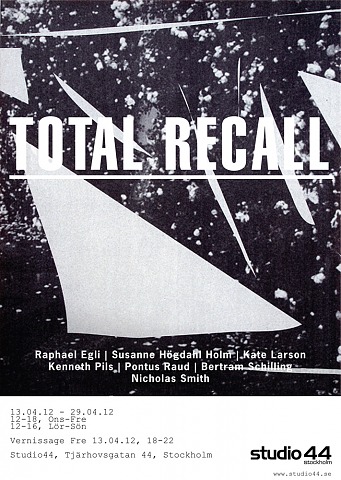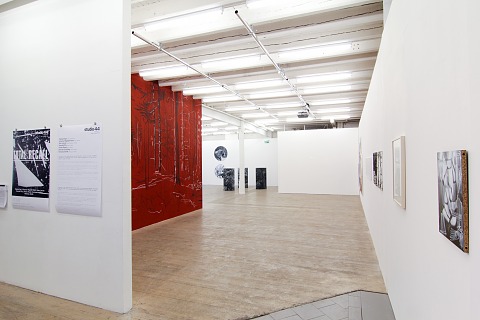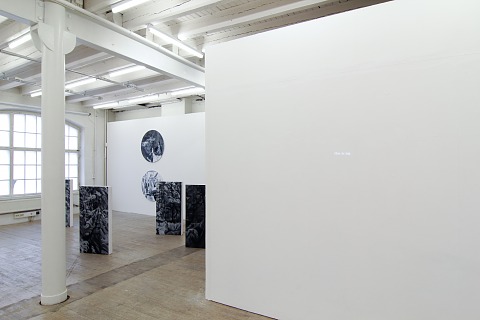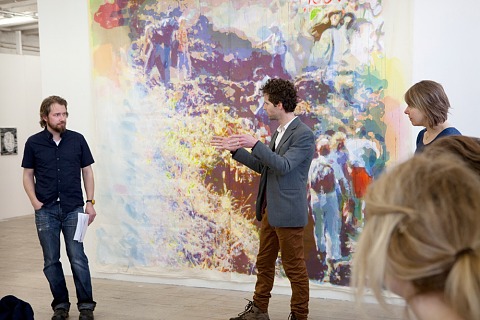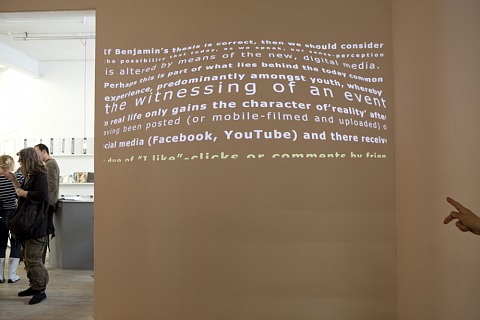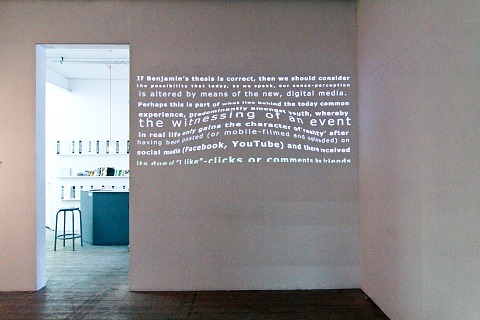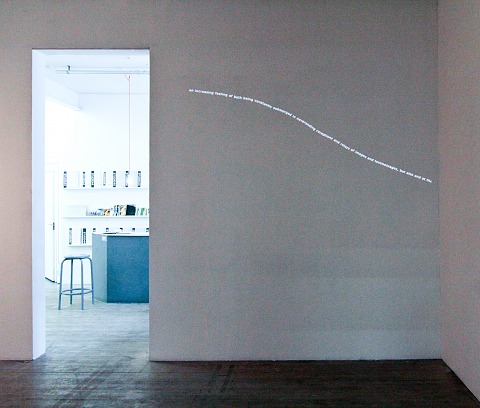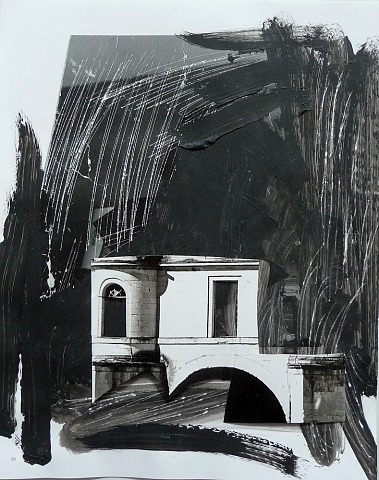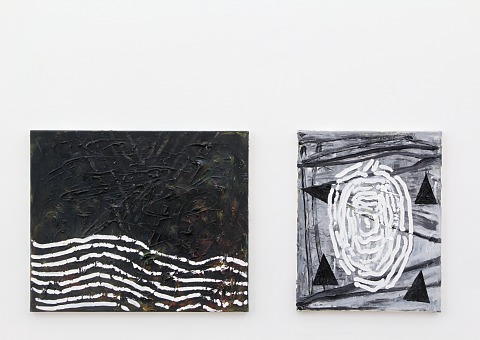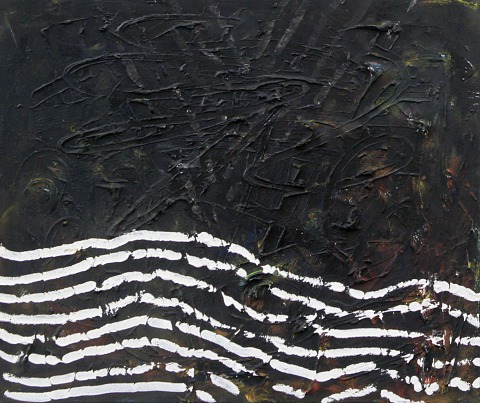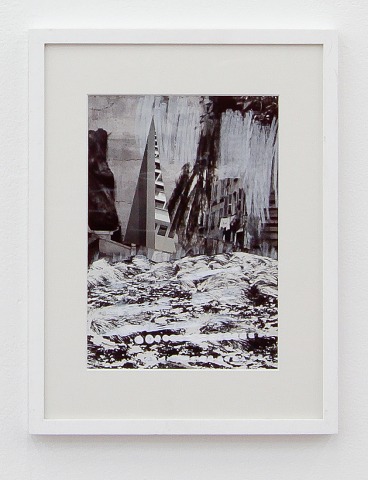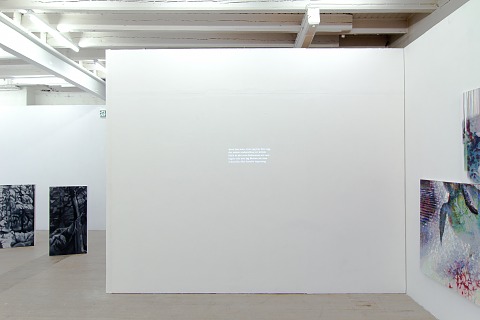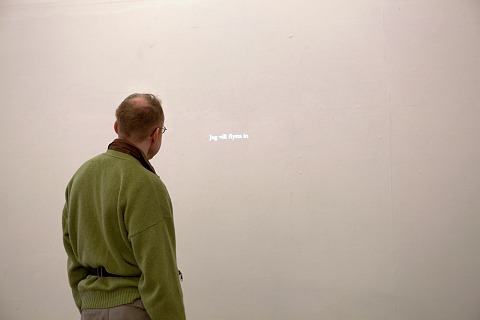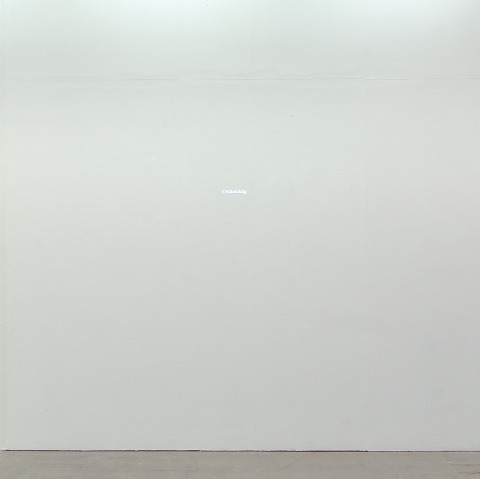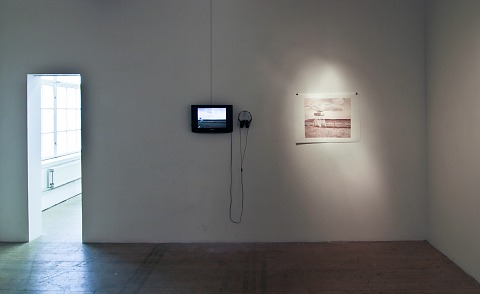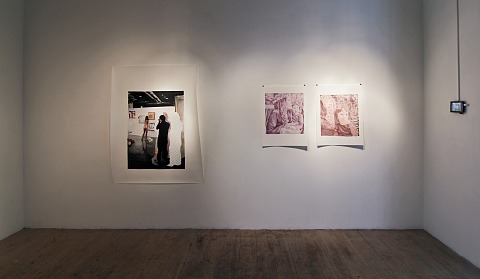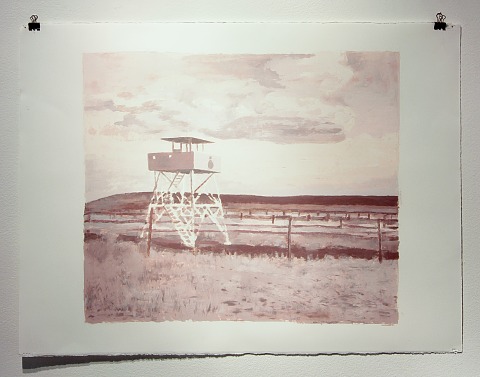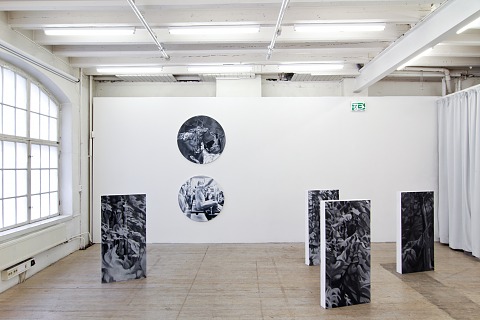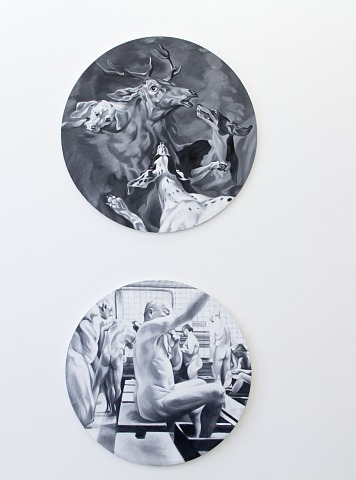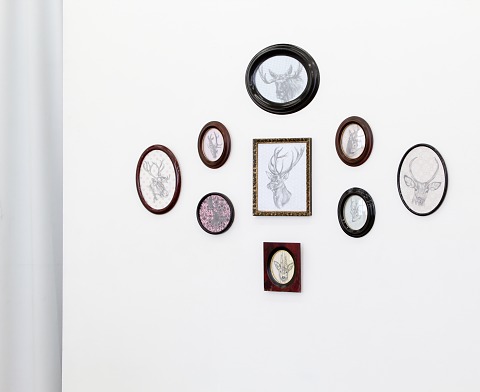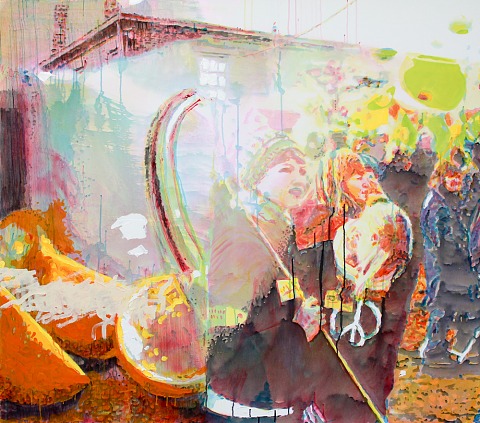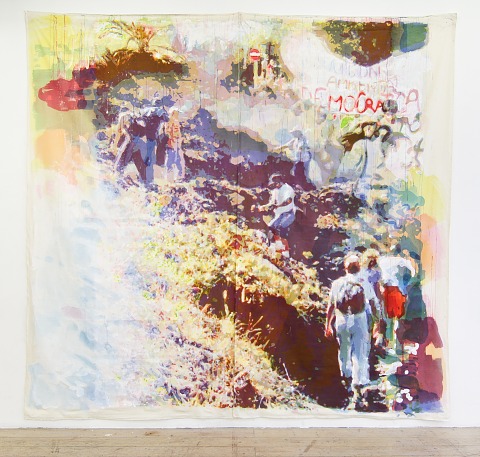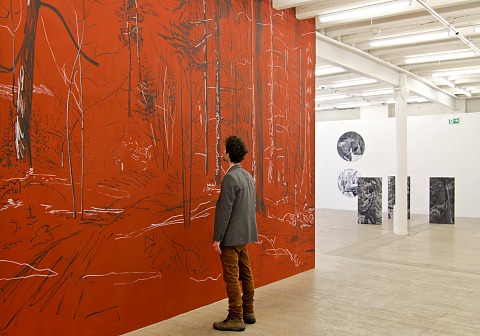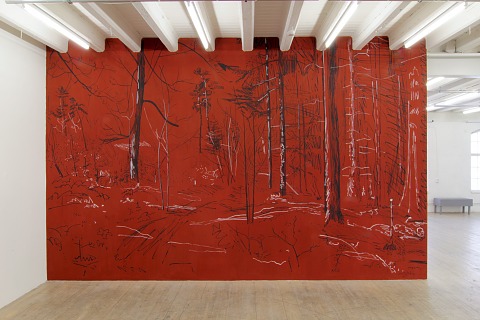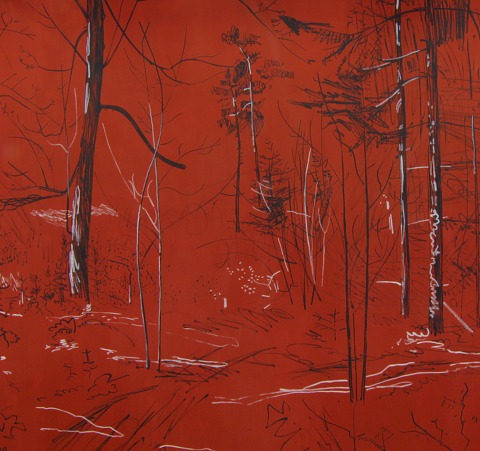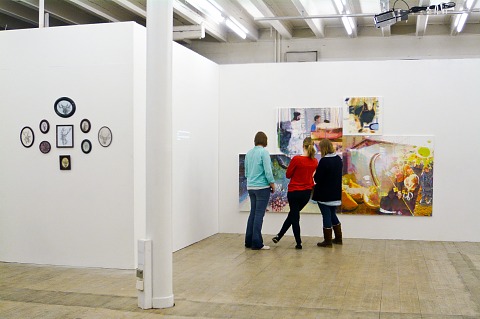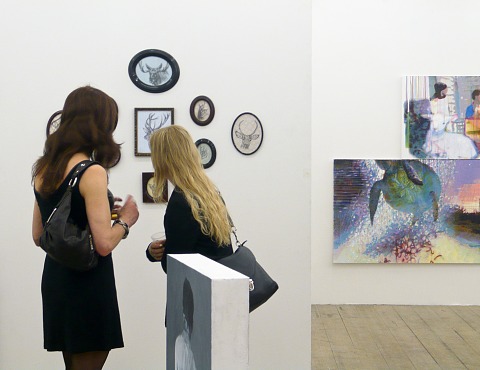Total Recall
TotalRecall is an interdisciplinary project where art and philosophy together investigate a condition that stems from an everyday experience of being virtually surrounded by images and texts.
These images and texts are often in a digital form, which has some consequences for the project, but it is not the digital-technological character in itself that is in the forefront. Instead, it is an experience of images and texts in a new kind of time and space which can most easily be described by means of new media: mobile phones that are employed to take and distribute photos and video clips but also text messages (and tweets); the internet with an emphasis on social media (Facebook), blogs and YouTube etc.
The exhibition will at least on the surface focus on “landscape painting” (landscape is here understood as a concept in transformation), and the ways in which both our outer, geographical and inner, psychological landscapes have been changed by the experience of this new time and space. But thereby our relation to the creation of new images, to representation/presentation of realities is also altered – even though this is a movement in both directions, at the same time.
By producing and re-flecting aspects of this experience in the ‘slow’ media of painting and writing, the project wishes to explore what can vaguely be called a condition in our times. Is this condition a result of these experiences, or do these technologies and experiences become possible because of this condition?
* Total Recall is a film from 1990 by Paul Verhoeven about reality and memory, inspired by the short story “We Can Remember It For You Wholesale” by Philip K. Dick from 1966. Welcome to Rekall, the company that can turn your dreams into real memories.
Research resources
-
"The pollution of time and distance is much more severe, in my opinion than the pollution of material substances."
Paul Virilio -
"The field of vision is comparable, for me, to the terrain of an archaeological dig. To see is to be on guard, to wait for what emerges from the background, without any name, without any particular interest: what was silent will speak, what is closed will open and will take on a voice."
Paul Virilio -
Ours is a culture based on excess, on overproduction; the resultat is a steady loss of sharpness in our sensory experience."
Susan Sontag, Against interpretation 1964

